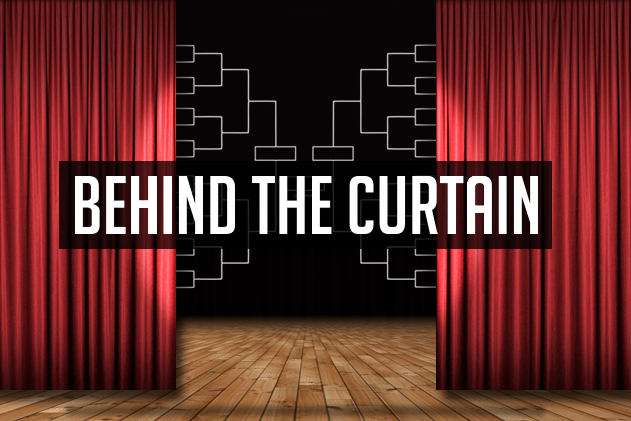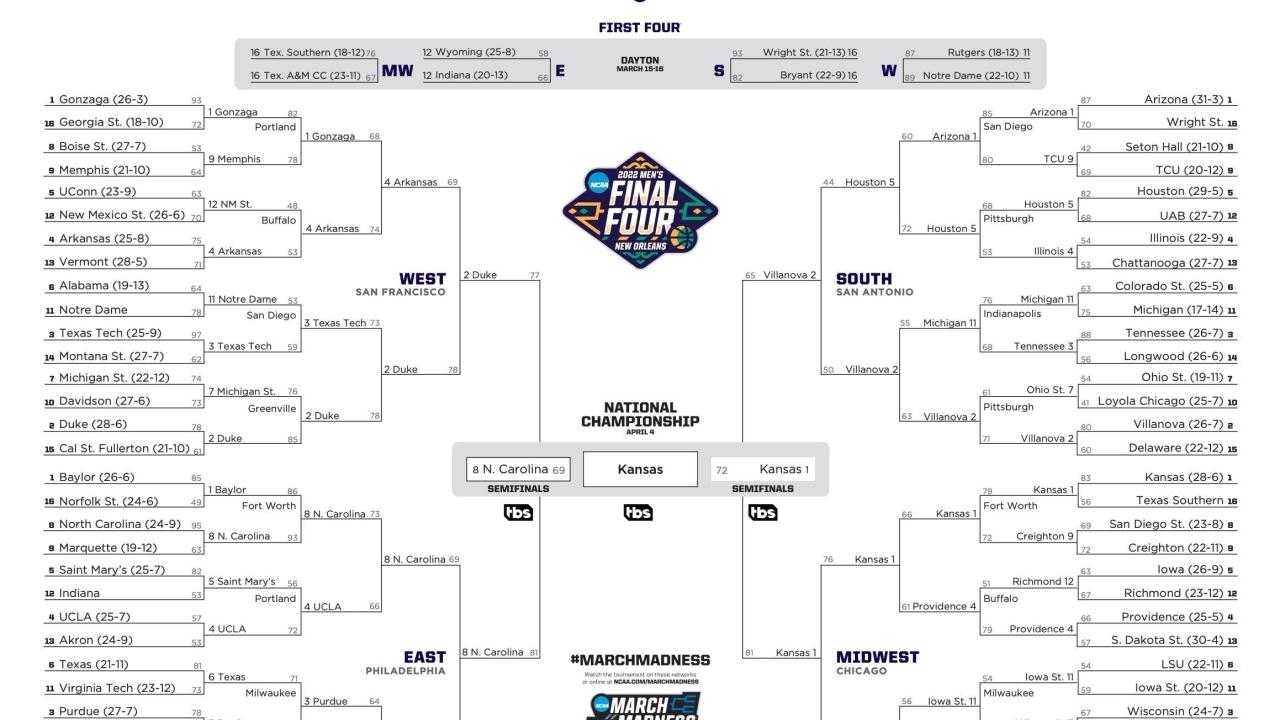its somewhat dated in that the rpi no longer exists but the basic seeding principle remains....pick 8, rank 8, elect 4 and repeat the process
INDIANAPOLIS — How much do you know about how the NCAA tournament field comes together? You know how to fill out a bracket. You might even know how to build a projected bracket...

bleacherreport.com
For instance, do you assume that the decision on what teams will be the "Last Four In" is excruciating? Nope. Turns out, the decision-making process doesn't change at all at that stage. No extra debate over two or three teams for the final spot, just the exact same method right down to the bitter end:
pick eight, rank eight, elect four.
• From there, here's the selection process for the rest of the teams: Each committee member selects eight teams from the "under consideration" board, in no particular order. The eight teams with the most votes are then ranked from top to bottom by each committee member. The top four vote-getters are moved into the field, while the other four are placed in holding while the committee goes back to the "under consideration" board to vote for what it feels are the eight best teams on the list. The top four from that round of voting join the four that were in holding, and then it ranks from top to bottom again.
• Then the committee does it again. And again. And again. And again. It's like
Groundhog Day on steroids. There are more than 100 formal voting rounds—and plenty of informal ones during the "scrubbing process" (more on that shortly). Seeding the field is the same idea, except the top four vote-getters are placed into the field in order of votes received.



